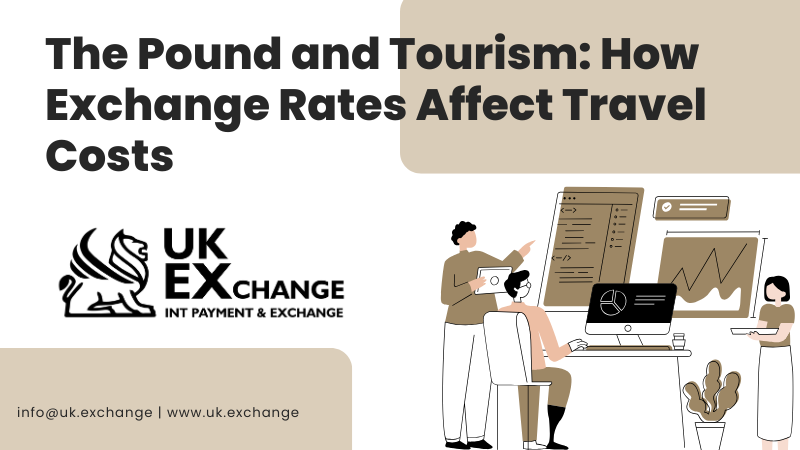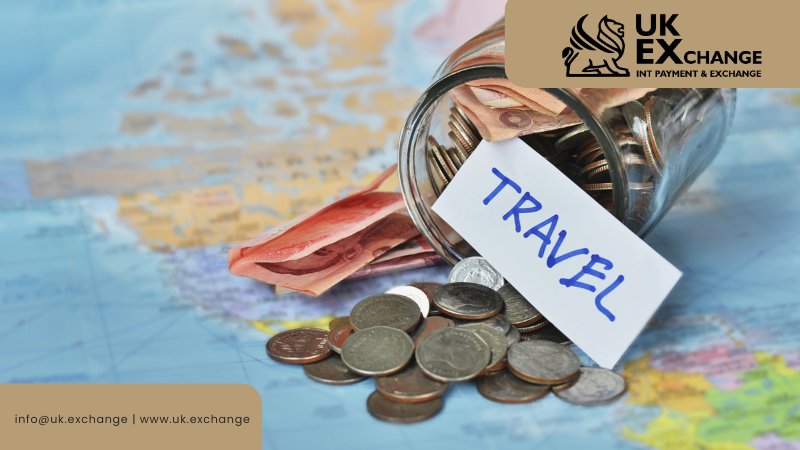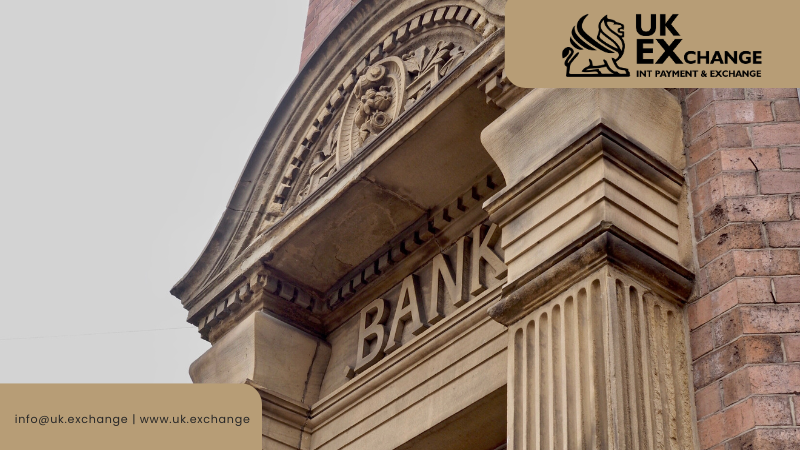
The relationship between exchange rates and travel costs is a topic every tourist and business traveler should understand, especially when dealing with the pound. As one of the world’s most traded currencies, the pound sterling (£) is subject to fluctuations that can significantly impact the cost of international travel. For UK tourists exploring abroad or visitors traveling to the UK, exchange rate changes can either stretch or shrink their budgets.
In this blog, we’ll dive into how exchange rates influence travel expenses, the factors driving these fluctuations, and practical tips for minimizing costs.
Understanding Exchange Rates and Travel Costs
At its core, an exchange rate determines how much one currency is worth when exchanged for another. For example, if the pound is strong compared to the euro, UK travelers can enjoy more purchasing power when visiting Eurozone countries, making everything from dining to accommodations relatively cheaper. On the flip side, a weaker pound can inflate costs for UK tourists while making the UK a more attractive destination for inbound travelers.
The exchange rate’s impact on travel costs manifests in several ways:
- Accommodation Prices: If the pound weakens, paying for hotels abroad becomes more expensive for UK travelers. Conversely, a strong pound can help secure luxurious stays for less.
- Transportation Costs: Airline tickets, train passes, or car rentals priced in foreign currencies fluctuate depending on the pound’s value.
- Daily Expenses: Meals, activities, and souvenirs are often priced in the local currency. Exchange rate changes can make everyday travel purchases more or less expensive.
- Inbound Tourism: For travelers coming to the UK, a weaker pound means their home currency stretches further, potentially boosting tourism numbers.
For a deeper understanding of how exchange rates work, check out this guide to exchange rates.

What Causes Exchange Rate Fluctuations?
To understand how exchange rates affect tourism, it’s essential to recognize what drives these changes. The value of the pound and other currencies can fluctuate due to several factors:
- Economic Data
Indicators such as GDP growth, inflation, and employment rates influence the strength of the pound. Strong economic data can bolster the currency, while weak data can lead to depreciation. - Interest Rates
The Bank of England’s decisions on interest rates play a critical role. Higher rates often attract foreign investment, strengthening the pound, while lower rates can weaken it. Learn more about how interest rates affect exchange rates. - Political Stability
Political events like elections, trade agreements, or geopolitical tensions can impact currency value. For example, Brexit created significant volatility for the pound, affecting travel costs for years. - Global Markets
Currency values are also influenced by international market trends and the strength of competing currencies like the US dollar or euro.
How Exchange Rates Affect UK Travelers Abroad
For UK residents traveling internationally, the pound’s strength can significantly shape their travel plans. Here’s how:
- Travel Destinations
A strong pound encourages travel to destinations where the local currency is weaker, offering better value for money. For instance, a favorable GBP to Turkish lira rate might make Turkey an attractive holiday destination. - Budget Adjustments
When the pound weakens, travelers may need to adjust their budgets, either by cutting back on expenses or choosing less expensive destinations. - Timing Matters
Exchange rate fluctuations can make it worthwhile to plan trips during periods of favorable currency strength. Watching the forex market or consulting currency experts can help UK travelers decide when to book trips or exchange money. For updated forex market trends, visit XE Currency Converter.
How Exchange Rates Affect Inbound Tourism to the UK
On the flip side, fluctuations in the pound’s value have a significant impact on inbound tourism.
- Attracting Tourists
When the pound weakens, the UK becomes more affordable for foreign tourists. A favorable exchange rate means visitors can enjoy more for their money, from iconic London attractions to countryside retreats. - Boosting Local Economies
Increased inbound tourism benefits local businesses, from hotels and restaurants to retailers. This is particularly true during periods of economic uncertainty when a weak pound makes the UK a top destination for budget-conscious travelers. - Luxury Goods and Shopping Tourism
The UK is a popular destination for luxury shopping. A weaker pound often attracts high-net-worth individuals who can save significantly on designer goods and high-end experiences.

Tips to Minimize Travel Costs Affected by Exchange Rates
Whether you’re a UK traveler heading abroad or a foreign tourist visiting the UK, here are practical tips to make the most of your money:
- Avoid Airport Currency Exchanges
Airport kiosks often offer poor exchange rates and high fees. Plan ahead by exchanging money at reputable providers or using online platforms like UK Exchange to secure better rates.
- Use Multi-Currency Cards
Travel-friendly cards that allow you to load money in different currencies can help you avoid unfavorable rates and extra fees while abroad.
- Time Your Purchases
For UK travelers, booking flights and accommodations early during periods of a strong pound can save money. Similarly, foreign tourists should consider locking in deals when the pound is weaker.
- Choose Local Payment Options Wisely
When paying by card abroad, always choose to pay in the local currency rather than GBP. Dynamic Currency Conversion (DCC) often comes with poor rates and hidden fees.
For additional tips on saving money while traveling, check out this travel money-saving guide.
Conclusion
Exchange rates play a pivotal role in shaping travel costs, influencing everything from daily expenses to destination choices. For UK travelers venturing abroad, the pound’s strength can determine whether their trip is a luxurious getaway or a tight-budget experience. Similarly, inbound tourism to the UK thrives when the pound is weaker, attracting visitors looking for affordable yet unforgettable experiences.
Understanding and managing the impact of exchange rates is key to maximizing travel value. By staying informed, planning wisely, and using trusted services like UK Exchange, travelers can navigate the currency market with ease and confidence.
Let UK Exchange be your partner in simplifying currency exchange, so you can focus on enjoying your journey—wherever the pound takes you.
Disclaimer
The information provided in this blog is for general informational purposes only and should not be construed as professional financial, legal, or investment advice. While we strive to ensure the accuracy and reliability of the information presented, UK Exchange make no guarantees regarding the completeness, accuracy, or suitability of the content. Readers are encouraged to consult with qualified professionals for advice tailored to their individual circumstances.

